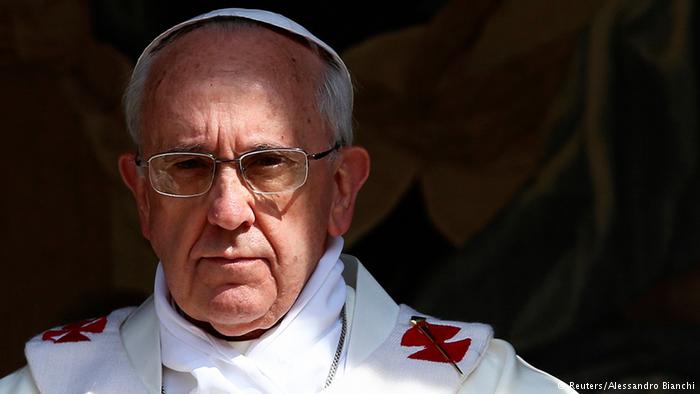Pope Francis' visit to UAE sends 'message of coexistence'
 On his first visit to the Arabic peninsula, Pope Francis will travel to the United Arab Emirates on Sunday. The UAE's ambassador to Germany, Ali Abdulla Al Ahmed, tells DW why it's so important for the region.
On his first visit to the Arabic peninsula, Pope Francis will travel to the United Arab Emirates on Sunday. The UAE's ambassador to Germany, Ali Abdulla Al Ahmed, tells DW why it's so important for the region.
DW: Your Excellency, Pope Francis will travel to the United Arab Emirates (UAE) this Sunday. He will be the first pope to ever visit the Arabic peninsula. What is the importance of the pope for your country?
Ambassador Ali Abdulla Al Ahmed: The visit of His Holiness Pope Francis to the UAE has a significant meaning. To my country, the United Arab Emirates, but also beyond that. It's a great opportunity when the head of the Catholic church with more than 1,2 billion Roman Catholics meets with the grand imam in Abu Dhabi. That's a symbol of tolerance. We are sending a message of peace and coexistence.
In what sense?
Today there are many wrong messages around the world, even misinterpretations of the messages of God. Religion is based on mercy, on tolerance and accepting each other. I think the visit will be a huge step forward, that will help to bring the philosophy of coexistence together and how we can accept each other based also on the differences we have. It's a great thing that God made us as unique individuals. So the visit and the meeting between the two most important religions in the world will be a huge step forward.
What about tolerance and pluralism in the UAE?
That is something we really practice. Religious pluralism is very common in the UAE, more now than in the 1950s or 60s. Today there are more than 70 churches, temples and a synagogue for all sorts of religions. We need to practice it. Also, there are laws and legislation against discrimination based on race or faith or any sort of other thing, that some people try capitalize on our differences for a certain agenda. I think religious tolerance and tolerance, in general, is the core of all religions. That's something that we cannot take away.
We don't know what the pope will say during his visit. The purpose of the visit is an interfaith meeting, it's not a political meeting. But what will happen if the pope prays during the public mass for the victims of war, for example, like in Yemen, in which the UAE are involved? Is there any restriction for the pope?UAE Ambassador to Germany Ali Abdulla Al Ahmed: 'We are the first people who would benefit from peace in our area'
There is no restriction. His Holiness is a man of peace, and we realize this. And we realize also that we are the first people who would benefit from peace in our area. In Yemen, from day one it was clear that a political solution is the only solution for the people to have a decent life. And as a part of the coalition, we are willing to negotiate with the other party.
But to negotiate you need another party who have the credibility to deliver. Since the Stockholm agreement in December, there have been more than 600 violations of this agreement according to the United Nations, violations committed by the Houthi rebels. We want to go forward with this looking for a political solution. But for a political solution you need all parties to come together, for the Houthis it means to help the enemy and to help themselves.
For people in Europe, the perception of the situation in the Arab world is very difficult, with wars, conflicts and violence, for example in Syria, in Iraq, in Libya. There are violence and instability…
I understand why the perception of the Arab world is all about violence and instability. One-third of the international news bulletins is about the Middle East. And the news that comes from the Middle East right now is not only positive.
There are many successful stories also in the Arab world, and it's very important also for our allies in Europe, in America and everywhere else to encourage those successful models and to bring them forward. Yes, there is a lot of suffering. But we should not only focus on the destruction.
And we believe it's in the interest of the entire world to come together to solve not only the Middle East problem but also other problems. Especially regarding extremism and terrorism which are often beyond the control of countries. Today it's a problem that transcends borders. And we see many messages of hate and intolerance not only in our region. We see it here in Europe, we see it elsewhere, we see it here in Berlin. That's the problem. We need to come together to face all these wrong perceptions about religions. That's why the visit of Pope Francis means a lot, it creates a platform upon which we can build. And if people mislead each other and claim that Islam is fighting Christianity, that's not true at all. Both are religions of God and both are religions of peace.
Source: Deutsche Welle

